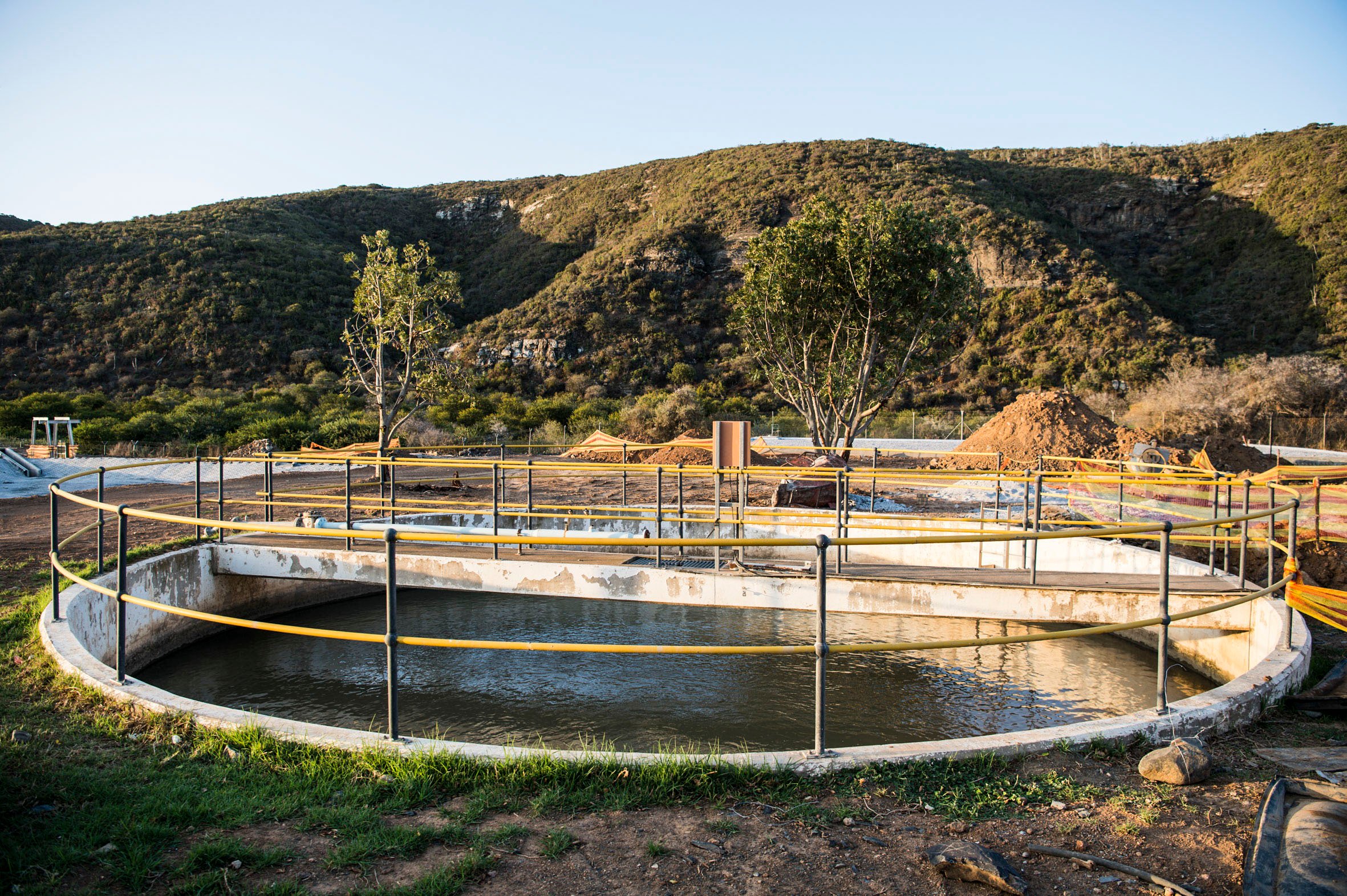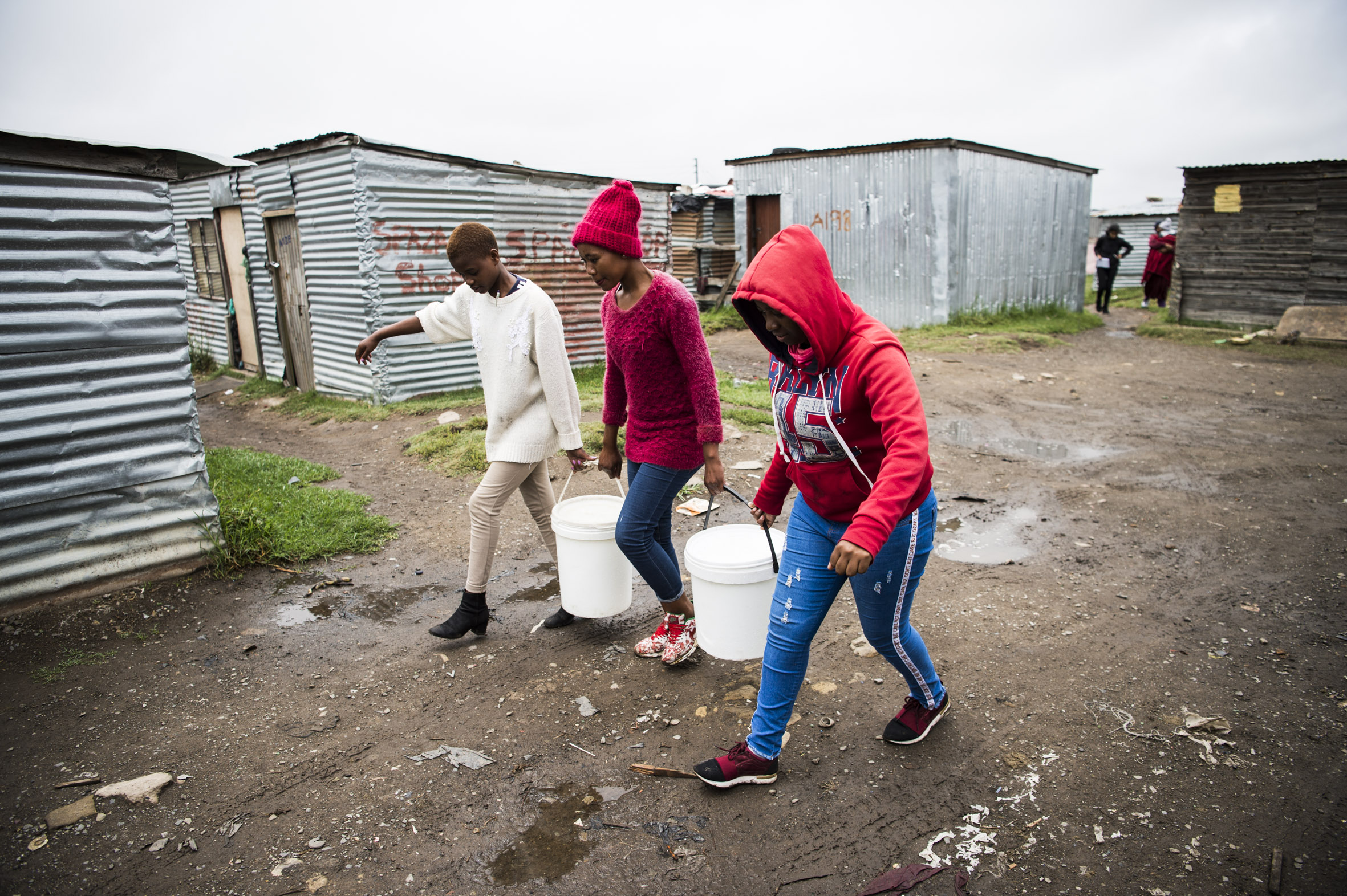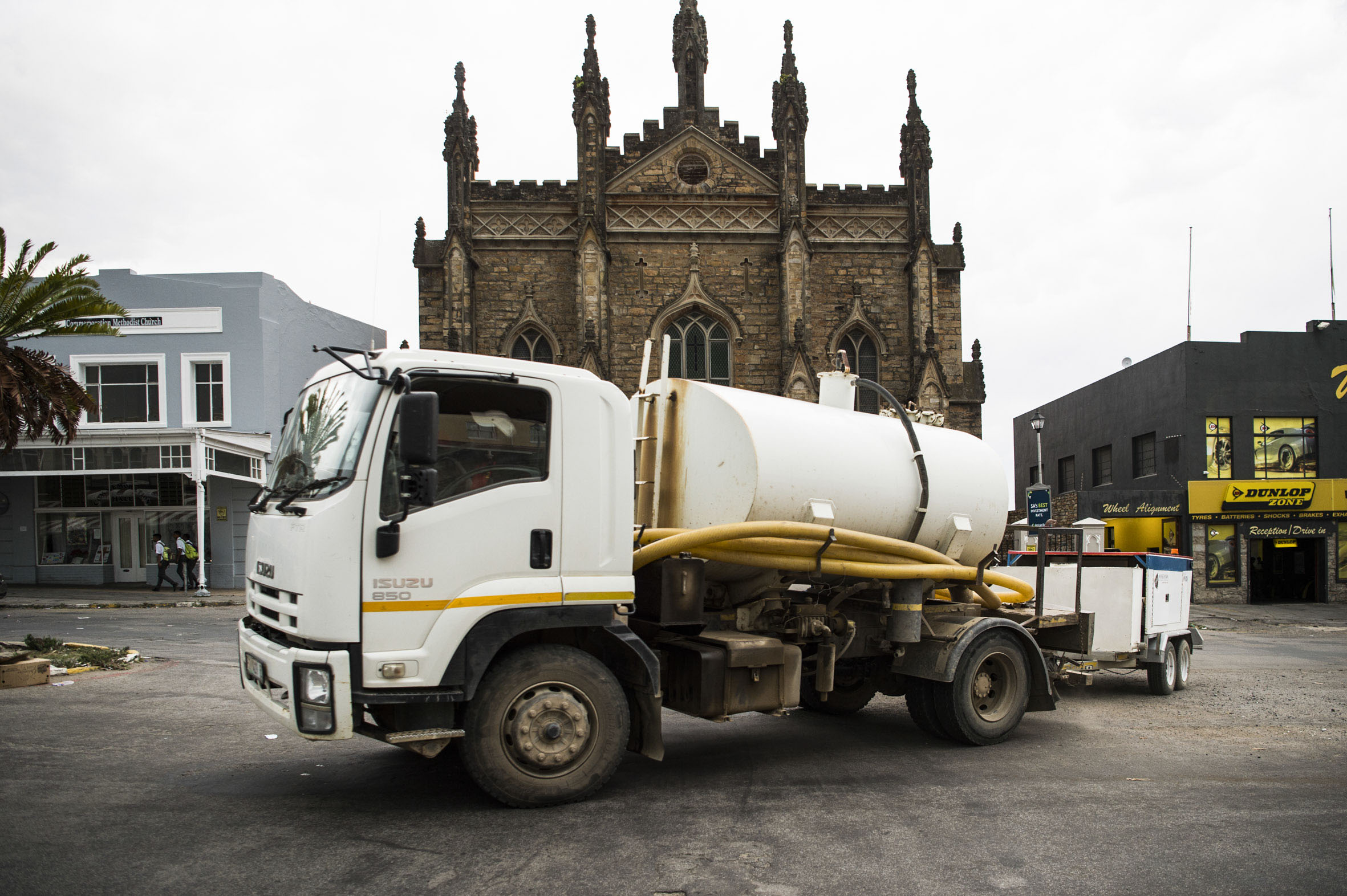Show goes on: Festival organisers have ensured alternative sources of water to the National Arts Festival in Makhanda. (Delwyn Verasamy)
For 45 years, the National Arts Festival has watched and captured South Africa’s evolution. From the 1980s’ states of emergency and the first democratic elections all the way through to the #FeesMustFall movement and state capture, creatives have used the festival to mirror events in the country.
The university town of Makhanda (previously known as Grahamstown) is transformed when more than 200 000 people attend 2 000-plus events performed over 11 days, which makes it the continent’s largest arts festival, according to the department of arts and culture.
But this 45th iteration of the festival, which runs from June 27 to July 7, has to contend with the effect of years of drought in the Eastern Cape.
In February, the town’s taps ran dry and the Makana local municipality, in which Makhanda is located, gave the go-ahead for disaster relief nongovernmental organisation (NGO) Gift of the Givers to start drilling boreholes.
According to the NGO’s Imtiaz Sooliman, the town experienced a shortfall of 13 megalitres of water a day because of reduced water levels in dams that supply Makhanda, and damage to the water treatment plant’s filters.

In February, Makhanda’s James Kleynhans water treatments works was filled with sludge and many of the municipality’s vehicles were broken. (Delwyn Verasamy)
Studies by the department of water and sanitation show that the student-heavy population of Makhanda needs about 20 megalitres of water a day. The shortfall means the town is without more than half of its water supply. The remaining megalitres come from the Orange/Fish River Tunnel that drives water from the Gariep Dam to the Eastern Cape’s arid Karoo. Talks are under way to double the supply, but it will only be completed by 2021.
Xolile Madinda, founder of the Fingo Festival, which forms part of the National Arts Festival, added that, since the drought’s genesis, township residents have had to incorporate “waiting for the municipality to deliver water that often isn’t enough” into their morning routines.

On their own: Residents (above) have to collect water from distribution points (below) because of the drought affecting Makhanda. (Delwyn Verasamy)

If Makhanda’s residents are battling to get water to attend to their everyday needs, how will the town accommodate the additional 200 000-plus people who will visit during the festival?
“We’ve got this,” is the short answer given by the festival’s chief executive, Tony Lankester, in a statement in March reassuring the public that the festival will go on as planned. All festival venues and most places offering accommodation are supplied with water stations and tanks for “visitors to drink and to attend to their personal needs”. Lankester said this water will be sourced from suppliers outside Makhanda to ensure that the festival does not affect or diminish the town’s supply.
In addition, as a way to give back to the people of Makhanda, the festival has partnered with Standard Bank to increase water capacity in townships, mainly at schools, through the Amanzi weMpilo Project, which looks after 1 200 children at early childhood development centres.
The festival has also partnered with Gift of the Givers to provide the monument — the festival’s main hub — a borehole that will supply the festival with 100 000 litres of water a day.
Lankester said in the March statement: “Their team has had a huge impact. They have been helping with short-term interventions such as supplying bottled water to residents. They are also drilling boreholes at strategic points around the city to provide us with an alternative source of water — a better and more sustainable solution.”
He told the Mail & Guardian that an additional 20 boreholes were scheduled to be sunk around Makhanda to add to the town’s daily water supply.
Water stations and tanks will also be provided at fringe festival venues in Makhanda’s townships of Joza and Fingo, where fringe festival events are held.
Organisers of events in the townships say they’re relying on Makhanda’s sense of community to stay afloat during a drought-stricken festival season.
“We have a supportive community. That’s the great thing about being in a communal space. It’s not like in town where you’re forced to buy water. There’s people who will give you a glass to drink or let you use the bathroom in their home,” said Madinda, who also organises The Return of the Cypher festival.
Critically, Gift of the Givers withdrew its services from Makhanda last week. This came as a result of the disaster relief organisation learning that private companies were allegedly being remunerated for interventions that Gift of the Givers had put in place, because only local companies qualify for the money that the department of water and sanitation gave the municipality for drought relief.
In a statement announcing the withdrawal the NGO said: “This is R10-million of taxpayers’ money handed out freely by the government to people as remuneration for work that Gift of the Givers did. Our hearts are with the people of Makhanda, the elderly, the women and children, and everyone who waited so patiently for water but as a matter of principle we cannot continue.”
As a part of the withdrawal, Gift of the Givers leaves it to the companies to “provide water tankers, drill boreholes, test the water, bring in filtration systems and deliver water to all areas as they will be paid to do that”. The NGO will also remove its water storage tanks and filtration systems.
In response to this turn of events, Lankester told the Mail & Guardian: “We met the Gift of the Givers over the weekend and spoke about the borehole that we’ve built next to the monument. We’ve received assurance that it is staying and not being taken away.”
He also said the festival organisers were in negotiations with the Gift of the Givers to see whether additional boreholes could be sunk at the festival’s other major venues such as the Fingo Village Library and Nombulelo Hall in Joza.
The festival is an integral part of Makhanda’s economy. It boosts the town’s annual gross domestic product by R94-million and creates employment for people who would otherwise have not worked during the year.
Regardless of the success of the contingency plans that the festival organisers have put in place, the sagas surrounding the drought point towards Makhanda’s water crisis. Perhaps instead of putting plans in place to ensure that Makhanda’s visitors are comfortable within the drought, residents with clout, such as Lankester, should call on the National Arts Festival’s partners to put sustainable interventions in place that will continue to benefit locals after the festival.